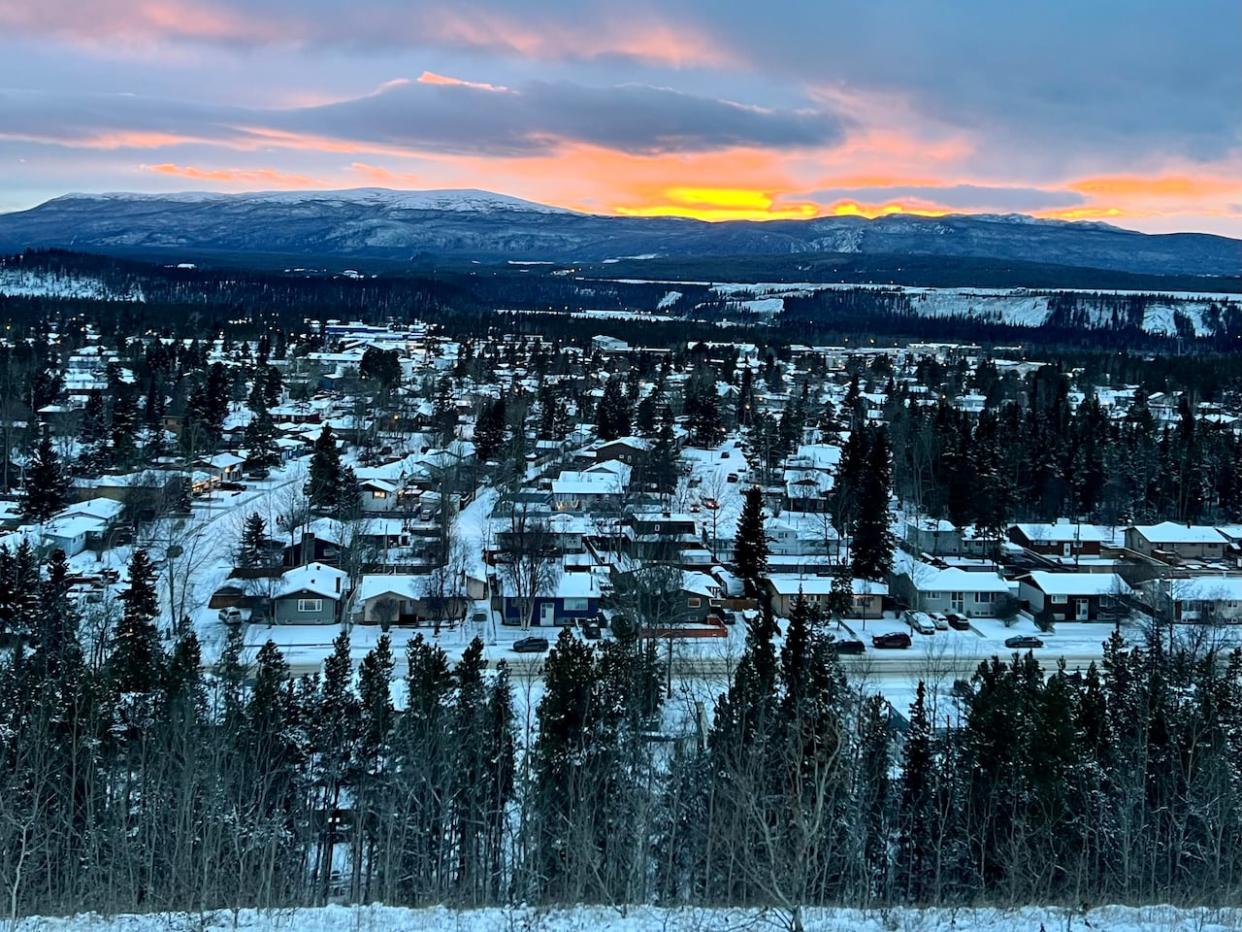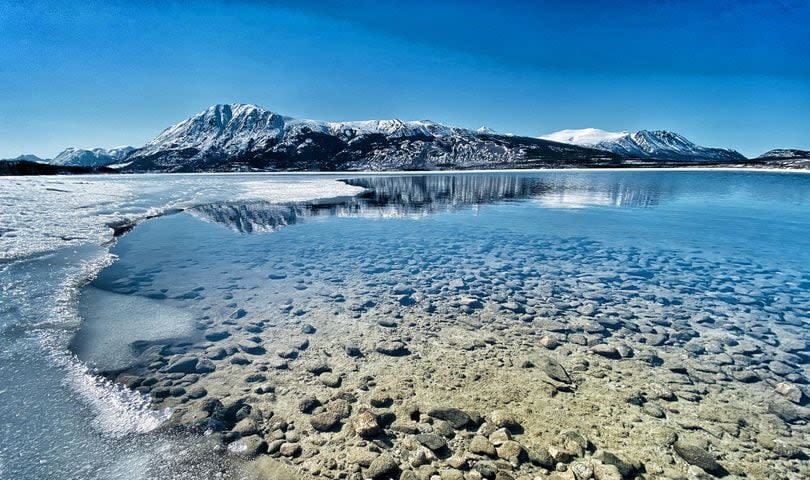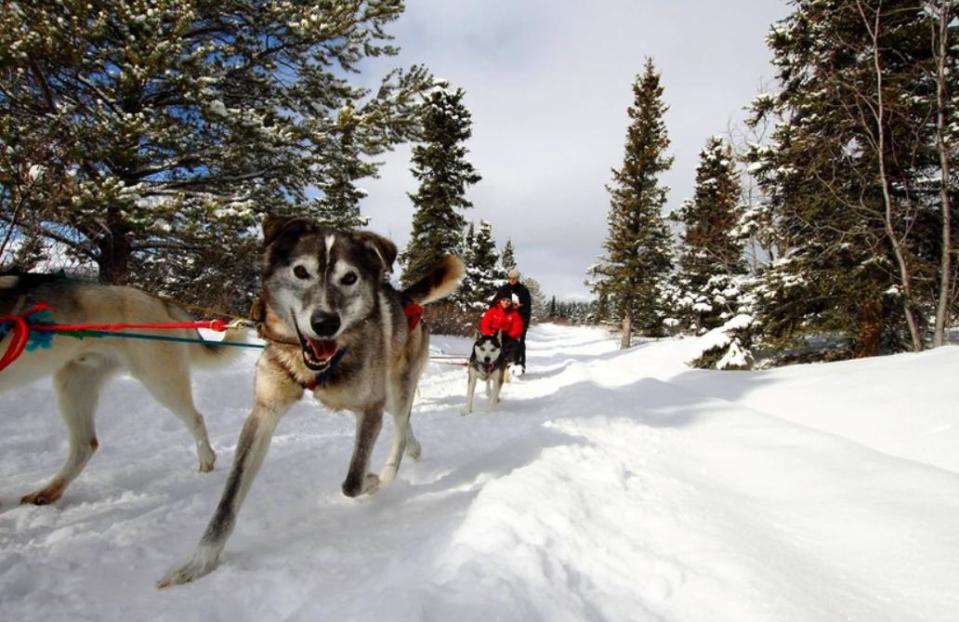Yukon gains about 1000 residents, ends 2023 as Canada's most populated territory


Scenery near Carcross. Darci Nyal, who moved to the Yukon in April, said she was struck by the sense of "spaciousness". "It's genuinely quiet at night and we like going out into the wilderness as far away from his people as possible." (Submitted by Marianna Berko)
The Yukon has snuck past the N.W.T. as the most populated territory by about 388 people, according to Statistics Canada.
The latest population estimate has the Yukon sitting at 45,148 residents, and N.W.T. at 44,760.
In the Yukon, there's been an increase of about 1,000 people between 2022 and 2023.
One of those new residents, Gemma Davis, moved from Red Deer, Alberta to Whitehorse in the fall.
"It's kind of cliche, but the move was inspired by a call to the north," she said.
"I think there's a lot of open space up here that was attractive to us. But also the community of Whitehorse we've only heard good things about, so it seemed like a good fit."
She said the town "instantly felt like home."
"It's bustling, it feels lively, there's people everywhere moving around," she said.

A dog sled tour near Whitehorse. (Sky High Wilderness Ranch)
Yukon a popular destination for overseas arrivals
Since 2003, the territory's population has increased by 50 per cent, according to data from the Yukon Bureau of Statistics.
Between 2022 and 2023, international migrants made up the vast majority of the territory's growth.
That includes permanent residents and non-permanent residents, such as those on work or study visas.
A smaller proportion of the growth is from natural increase, which is the number of births minus the number of deaths.
Thahaseem Kadankandagath moved to the community of Carmarcks two months ago after a stint in Vancouver, B.C..
He said the Yukon offered better prospects for his permanent residency application.
"It's now getting difficult if you are, like, living in metropolitan cities like Vancouver or Toronto, it's not that inclined towards the skilled immigrants like me, over 35 years of [age] who have experiences in different countries."
Kadankandagath said he was "amazed" by the friendly people he met on arrival in Whitehorse.
"It was way beyond expectation...they really welcomed me with a smile," he said.
"They're so customer service oriented. I did all my government applications like drivers license transfer, bank account application, application of health insurance in half an hour. All in all [that's] amazing compared to British Columbia."
More Canadians leaving the Yukon than moving here
Data from the Yukon Bureau of Statistics suggests a greater number of people have been leaving the Yukon to live in other parts of Canada, compared to the number of people moving here from within the country.
In the figures, collected mid-2023, more than half the arrivals were people from B.C. and Ontario.
Darci Nyal made the move from Ucluelet, B.C., to Whitehorse in April.
She said she was struck by the sense of "spaciousness."
"It's genuinely quiet at night and we like going out into the wilderness as far away from people as possible. And it's getting harder and harder to do that on Vancouver Island."
Kaylee Alton arrived from Ontario in the fall.
She felt the Yukon offered a "work life balance" that her home province didn't.
"The lack of development... expansive sprawling cities, just made it feel more untouched and wild. Which could also be translated to more easily accessible to nature and getting outside," she said.
"There's a sense of banded togetherness with people living here that have to deal with the elements. And there's a slow way of being, a slower pace of living."
According the Yukon's figures, Alberta was the most popular destination for those leaving the Yukon, followed by B.C..


